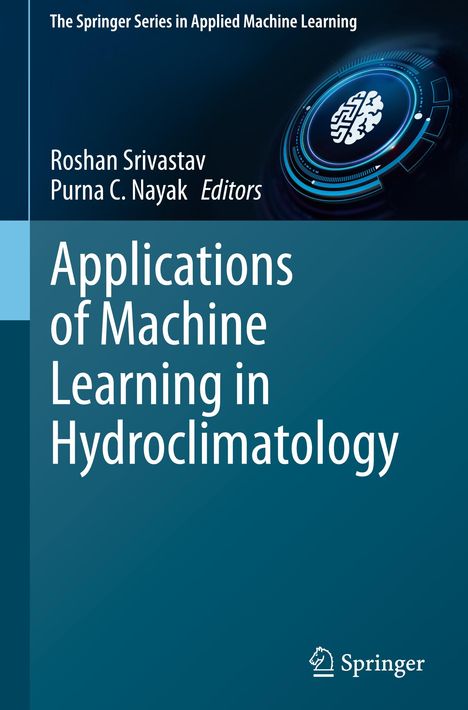Roshan Srivastav: Applications of Machine Learning in Hydroclimatology, Gebunden
Applications of Machine Learning in Hydroclimatology
(soweit verfügbar beim Lieferanten)
- Verlag:
- Springer, 11/2024
- Einband:
- Gebunden, HC runder Rücken kaschiert
- Sprache:
- Englisch
- ISBN-13:
- 9783031644023
- Artikelnummer:
- 12081535
- Umfang:
- 156 Seiten
- Gewicht:
- 407 g
- Maße:
- 241 x 160 mm
- Stärke:
- 15 mm
- Erscheinungstermin:
- 5.11.2024
- Hinweis
-
Achtung: Artikel ist nicht in deutscher Sprache!
Klappentext
Applications of Machine Learning in Hydroclimatology is a comprehensive exploration of the transformative potential of machine learning for addressing critical challenges in water resources management. The book explores how artificial intelligence can unravel the complexities of hydrological systems, providing researchers and practitioners with cutting-edge tools to model, predict, and manage these systems with greater precision and effectiveness. It thoroughly examines the modeling of hydrometeorological extremes, such as floods and droughts, which are becoming increasingly difficult to predict due to climate change. By leveraging AI-driven methods to forecast these extremes, the book offers innovative approaches that enhance predictive accuracy. It emphasizes the importance of analyzing non-stationarity and uncertainty in a rapidly evolving climate landscape, illustrating how statistical and frequency analyses can improve hydrological forecasts. Moreover, the book explores the impact of climate change on flood risks, drought occurrences, and reservoir operations, providing insights into how these phenomena affect water resource management.
To provide practical solutions, the book includes case studies that showcase effective mitigation measures for water-related challenges. These examples highlight the use of machine learning techniques such as deep learning, reinforcement learning, and statistical downscaling in real-world scenarios. They demonstrate how artificial intelligence can optimize decision-making and resource management while improving our understanding of complex hydrological phenomena. By utilizing machine learning architectures tailored to hydrology, the book presents physics-guided models, data-driven techniques, and hybrid approaches that can be used to address water management issues. Ultimately, Applications of Machine Learning in Hydroclimatology empowers researchers, practitioners, and policymakers to harness machine learning for sustainable water management. It bridges the gap between advanced AI technologies and hydrological science, offering innovative solutions to tackle today's most pressing challenges in water resources.

